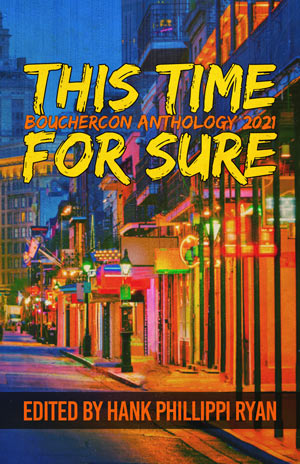"Back Down to Black," by Andrew Welsh-Huggins, in Mystery Magazine, November 2021. This is the fourth appearance here by Welsh-Huggins,and I think it is the second appearance by protagonist Mercury Carter. It's hard to tell because the hero of "The Mailman" is nameless, as far as I can tell. They certainly seem to be the same guy.
So who is that guy? He's a delivery man, the person you contact when the package absolutely, positively needs to be there on time - and bad guys are ready to kill to prevent that. In the first story the package was two people. Today it is a flash drive full of potentially life-saving data needed by a virologist.
Someone once described Thomas Perry's novels as "competence porn," meaning that his protagonists don't make mistakes and have whatever skills they need. We are in that territory here.
Here is Carter reacting to someone putting a gun against the back of his head and telling him "Don't do anything stupid."
'Sure,' said Carter, and did something stupid, driving his left elbow back into the man's chest. Carter was hardly big enough to do any kind of damage with such a move, which almost any schoolboy could manage better, but it startled No. 4 and the gun barrel slipped off Carter's neck momentarily and he turned and broke the man's nose with his left palm, rocketing his hand forward like a power to the people salute gone terribly wrong.
Actually the character reminds me less of Perry's heroes than of Richard Stark's Parker, although Carter appears to be a good guy. A most enjoyable story.





